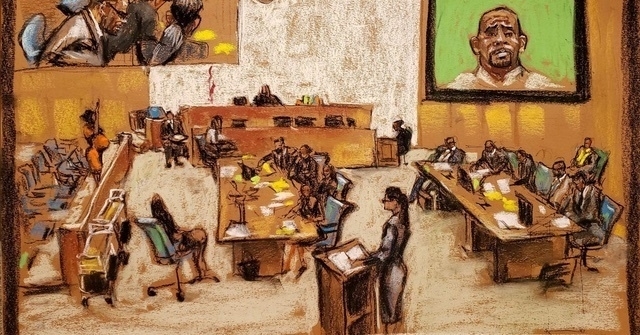
The trial of R. Kelly on federal racketeering charges is being held on a semi-virtual basis: the jurors are not in the courtroom. Supposedly this is for health reasons; but if everyone else is in the courtroom safely, what is the justification for the novel approach of excluding the jury?
For the past thousand years, common law criminal trials took place “in the presence of the jury,” a requirement that was mandatory, the language almost incantantory, ritualistic and somewhat supernatural in nature.
The ability of the jury to observe and make credibility determinations was based, in part, on that language and that ritual. Removing the requirement without statutory–perhaps Constitutional authority—in the interests of expediency is a denial of due process. The Constitution mandates a “trial by jury,” not a television show of a trial.
Nevertheless, R. Kelly will be convicted and this precise point will be raised on appeal. The appeal will be rejected because “pandemic, you know” and “R.Kelly’’s a bad guy, you know.” The precedent will be used to open the path to simultaneous, mass trials, another consequence of the Sickness, and one that will not go away even if a cheap, effective cure is found.